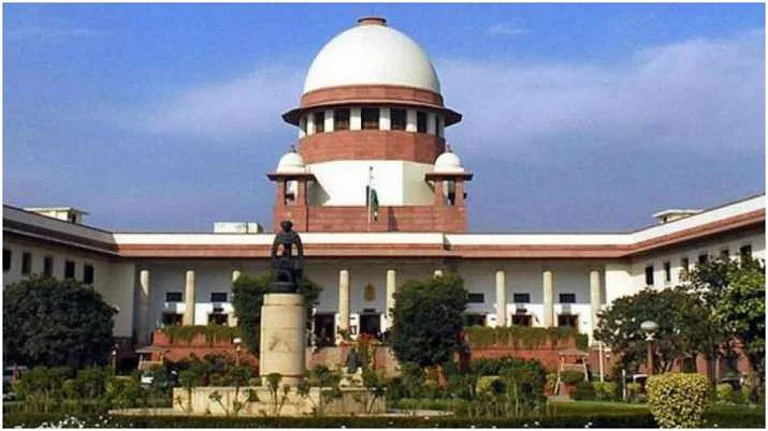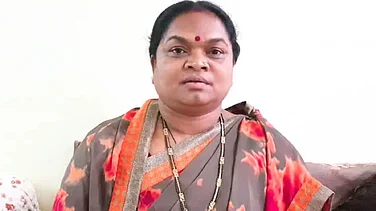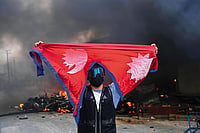Amid political parties fighting over "redistribution of wealth", a debate which escalated after Prime Minister Narendra Modi's last Sunday's speech at a rally in Rajasthan, the Supreme Court on Wednesday said it will not "adhere to Justice V R Krishna Iyer's 1977 Marxian interpretation of Article 39(b) of the Constitution that a community's "material resources" would include private properties for reallocation to subserve the common good."
PM Modi on Sunday triggered a debate after making a statement at a rally in Rajasthan, which triggered reactions by a section of people and the Congress party. Addressing the rally in Rajasthan's Banswara on Sunday, PM Modi said the Congress plans to give people's hard-earned money and valuables to "infiltrators" and "those who have more children", naming the Muslim community.
Since then, BJP has been at loggerheads with Congress and other opposition parties over the "wealth distribution" claims.
Engaged in interpreting the extent of Article 39(b) of Directive Principles of State Policy in the Constitution, a nine-judge Supreme Court bench headed by CJI DY Chandrachud said there must be a distinction between community resources, held in trust by the present generation for future generations, and privately owned property, according to a Times of India report.
The nine-judge bench included: Justices Hrishikesh Roy, BV Nagarathna, S Dhulia, JB Pardiwala, Manoj Misra, R Bindal, SC Sharma and AG Masih.
What Does Article 39 Of The Indian Constitution Say?
39. Certain principles of policy to be followed by the State
“The State shall, in particular, direct its policy towards securing -
(a)that the citizens, men and women equally, have the right to an adequate means to livelihood;
(b)that the ownership and control of the material resources of the community are so distributed as best to sub serve the common good;
(c)that the operation of the economic system does not result in the concentration of wealth and means of production to the common detriment;
(d)that there is equal pay for equal work for both men and women;
(e)that the health and strength of workers, men and women, and the tender age of children are not abused and that citizens are not forced by economic necessity to enter avocations unsuited to their age or strength;
[In article 39 of the Constitution, for clause (f), the following clause shall be substituted through Constitution (Forty-Second Amendment) Act, 1976]
(f)that children are given opportunities and facilities to develop in a healthy manner and in conditions of freedom and dignity and that childhood and youth are protected against exploitation and against moral and material abandonment.”
'Marxist Socialist Interpretation...': What SC Said
During the proceedings, counsels representing various parties, including the Property Owners Association (POA) of Mumbai, argued against the notion that private properties could be seized by state authorities under constitutional schemes such as Articles 39 (b) and 31 C, a Firstpost report said.
The bench, however, warned against an extreme interpretation that excludes private property from being considered as material resources of the community.
CJI Chandrachud said, "We don't have to go as far as the Marxist socialist interpretation by Justice Krishna Iyer [of Article 39(b) in Ranganatha Reddy case of 1977]. But community resources will surely include resources which the present generation holds in trust based on inter-generational equity," the CJI was quoted as saying in the TOI report.
He said there were two extreme views on this: 1. "The Marxist socialist view is everything belongs to the state and the community." and 2. "The capitalist view puts importance on individual rights. And there is the Gandhian view of holding resources in trust for protecting inter-generational equity."
The CJI suggested that communal assets would encompass natural resources, regulated by sustainable development standards defined by the Supreme Court, as these are entrusted by the present community for future generations. However, he added a caveat, stating that even if privately owned, forests, lakes, and mines would still be considered communal resources, with benefits derived from them for the greater common good not to be hindered by invoking individual rights.
"We cannot say Article 39(b) has no application to privately held properties like water, forests and mines. But it should not be taken to the level of taking someone's personal property for distribution," said CJI DY Chandrachud.





















